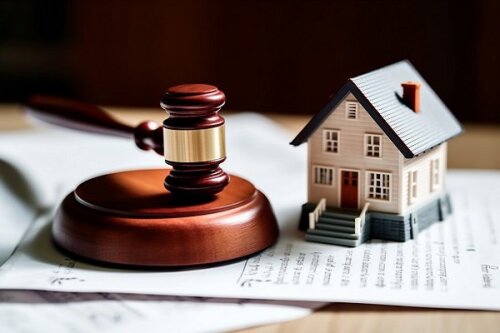Best Housing, Construction & Development Lawyers in Singapore
Share your needs with us, get contacted by law firms.
Free. Takes 2 min.
Free Guide to Hiring a Real Estate Lawyer
Or refine your search by selecting a city:
List of the best lawyers in Singapore
About Housing, Construction & Development Law in Singapore
Housing, construction, and development form a crucial part of Singapore's urban landscape. Given its limited land area, Singapore emphasizes efficient urban planning and sustainable development. The legal framework governing this domain includes regulations on property purchase, construction standards, zoning, environmental impact assessments, and more. The law ensures that both residential and commercial developments are conducted safely, sustainably, and in alignment with national interests.
Why You May Need a Lawyer
Individuals and businesses may require legal assistance in Singapore's housing, construction, and development sector for several reasons. Common situations include:
- Purchase or sale of residential and commercial properties
- Handling disputes related to construction contracts or defect liabilities
- Navigating zoning and land use regulations
- Ensuring compliance with building codes and safety regulations
- Managing landlord-tenant disputes
- Interpreting complex legal documents related to property and construction
Legal expertise can help prevent potential issues and provide solutions to existing problems within these domains.
Local Laws Overview
Singapore's legal framework concerning housing, construction, and development is comprehensive. Key aspects include:
- Housing Developers (Control and Licensing) Act: Regulates the activities of housing developers and protects the interests of property buyers.
- Building Control Act: Addresses building safety and standards, mandating compliance with the Building Code.
- Land Titles Act: Governs the registration and management of land titles in Singapore.
- Real Estate Development and Investment: Overseen by the Urban Redevelopment Authority (URA) which handles zoning, urban design, and conservation works.
- Residential Property Act: Controls foreign ownership and investments in residential properties.
Frequently Asked Questions
What is the role of the Urban Redevelopment Authority (URA)?
The URA is Singapore's land use planning authority. It oversees zoning, urban design, and guides the physical development of Singapore to create a vibrant and sustainable city.
Do I need approval for renovation or redevelopment of property?
Yes, most renovations or redevelopments require approval from relevant authorities to ensure compliance with building codes and zoning regulations.
Can foreigners buy property in Singapore?
Generally, foreigners can purchase non-landed private properties, but there are restrictions on landed properties unless specific approval is obtained.
What steps are involved in property transactions in Singapore?
Property transactions typically involve a property agent, signing an Option to Purchase, legal due diligence, and completion of sale through legal formalities.
What should I do if I'm in a construction dispute?
It's advisable to consult with a lawyer who specializes in construction law to navigate dispute resolution mechanisms such as mediation or arbitration.
How are building defects handled legally?
The Defects Liability Period is a time frame during which contractors must rectify any defects that arise. Legal action can be pursued if obligations are unmet.
What are the typical legal costs in property transactions?
Legal costs can vary based on the complexity of the transaction but commonly include fees for conveyancing, due diligence, and advisory services.
How does lease renewals or terminations work?
Lease agreements outline the terms for renewals or terminations, which should align with the Landlord and Tenant Act governing such contracts.
How is land zoning regulated?
The URA manages land zoning, detailing what can be built and for what purpose, ensuring alignment with Singapore's Master Plan.
What is the significance of the Common Property in strata-titled developments?
Common property in strata developments refers to areas shared among unit owners, such as lobbies and swimming pools, overseen by a Management Corporation.
Additional Resources
To further understand housing, construction, and development in Singapore, consider the following resources:
- Urban Redevelopment Authority (URA)
- Building and Construction Authority (BCA)
- Singapore Land Authority (SLA)
- Law Society of Singapore
- Ministry of National Development (MND)
Next Steps
If you require legal assistance in the areas of housing, construction, and development, consider the following steps:
- Consult with a lawyer specialized in property and construction law to discuss your needs.
- Prepare all necessary documentation related to your case or concern.
- Schedule a legal consultation to receive tailored advice and understand your options.
- Explore mediation or arbitration if you are involved in a dispute.
Early and informed legal intervention can help you navigate complex regulations and achieve desirable outcomes in your housing and construction endeavors.
Lawzana helps you find the best lawyers and law firms in Singapore through a curated and pre-screened list of qualified legal professionals. Our platform offers rankings and detailed profiles of attorneys and law firms, allowing you to compare based on practice areas, including Housing, Construction & Development, experience, and client feedback.
Each profile includes a description of the firm's areas of practice, client reviews, team members and partners, year of establishment, spoken languages, office locations, contact information, social media presence, and any published articles or resources. Most firms on our platform speak English and are experienced in both local and international legal matters.
Get a quote from top-rated law firms in Singapore — quickly, securely, and without unnecessary hassle.
Disclaimer:
The information provided on this page is for general informational purposes only and does not constitute legal advice. While we strive to ensure the accuracy and relevance of the content, legal information may change over time, and interpretations of the law can vary. You should always consult with a qualified legal professional for advice specific to your situation.
We disclaim all liability for actions taken or not taken based on the content of this page. If you believe any information is incorrect or outdated, please contact us, and we will review and update it where appropriate.
Browse housing, construction & development law firms by city in Singapore
Refine your search by selecting a city.















